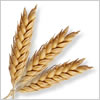 EU: Mild end to winter helps sowing and could boost barley crop prospects
EU: Mild end to winter helps sowing and could boost barley crop prospects
A mild end to winter has helped European Union farmers start sowing spring barley and wetter conditions since last week could boost crop prospects even if rain slows field work, the Times of India reported on March 3.
The barley crop area is likely to be adjusted only slightly as farmers weigh up attractive prices for varieties used to make beer ingredient malt against a push to plant more sugar beet as the EU liberalises sugar production.
In Britain, however, farmers are turning more strongly towards spring barley as a way of controlling weeds.
In France, spring barley sowing was about one-third complete by Monday, February 27 and ahead of last year's pace, data from farming agency FranceAgriMer showed on March 3.
"Conditions have been favourable for initial spring barley sowing, with field work benefiting from dry, well-structured soils and high nitrogen residues after low rainfall this winter meant there was little leaching," Jean-Paul Bordes of crop institute Arvalis said.
"The return of rain has curbed sowing progress but the moisture is welcome for the preparation of maize planting."
Arvalis expects minor variations in spring crop area, even allowing for possible replacement of damaged winter rapeseed and a planned increase in sugar beet planting, Bordes said, adding that premiums remained attractive for malting barley.
Rains have slowed early spring planting in Britain, where spring barley sowings were around one percent complete, analyst Sarah Wynn of crop consultants ADAS said.
The spring barley area is expected to rise by about 7 percent, as farmers in eastern England use spring cropping to control weeds.
"Where they have got blackgrass there has been a shift towards using more spring cropping to help manage weed problems. The shift has been maintained this year," Wynn said.
In Germany, spring sowings were seen starting in a normal timeframe in mid to late March, and limited winter damage may keep the spring crop area broadly stable.
"Provided there are no late winter weather shocks in March, I think German spring sowings will be broadly similar to last year," one German grains analyst said.
"A slight rise in Germany's spring barley area could be possible as demand from malt producers remains strong."
In Poland, however, deep frosts in January are expected to generate a larger than usual need to replace damaged winter grains.
Up to 5 percent of winter crops may require replanting, said Wojtek Sabaranski of analysts Sparks Polska, compared with 2 to 3 percent typically.
Early March is forecast to be warm and rainy in Poland, and this could delay sowing after melting snow already soaked fields, Sabaranski said.
"We assume no major change in total wheat acreage, winter and spring, maize, and rye acreage, and slightly larger barley and triticale acreage," he added.
Back
E-malt.com, the global information source for the brewing and malting industry professionals. The bi-weekly E-malt.com Newsletters feature latest industry news, statistics in graphs and tables, world barley and malt prices, and other relevant information. Click here to get full access to E-malt.com. If you are a Castle Malting client, you can get free access to E-malt.com website and publications. Contact us for more information at marketing@castlemalting.com .





